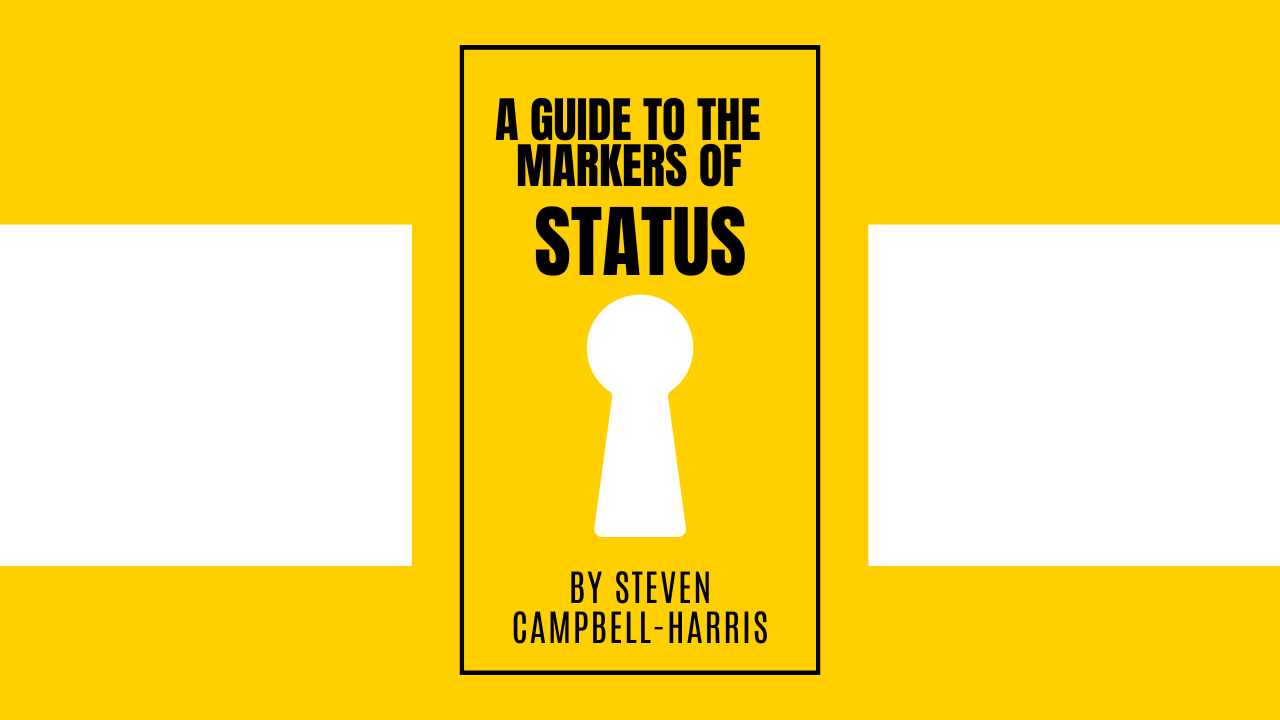Who has more status,
A banker or a social worker?
A PhD student or a monk?
A writer or a model?
How you answer these questions reveals a lot about how you measure a person’s worth. Which do you value more: wealth or virtue? Intelligence or wisdom? Creativity or good looks? These value judgments lead us to rank some as ‘higher status’ than others. We use them to judge who is more important and more desirable.
The philosopher Agnes Callard points out a curious tension in how we think about status. She claims that our status comes in two kinds.
First, we all get a certain amount of status just by virtue of being human. This is something we are born with, which we have equally with other humans, and it can’t be taken away from us.
Second, we get status from what we do and how we behave. This is acquired by us, so we can have it to a greater or lesser degree.
These two markers of status are clearly in conflict. The first rests on a belief, common in Western societies with a Christian religious heritage, that people are equally valuable (in the eyes of God) regardless of who they are and what they do. The second, however, places some people symbolically above others. We judge that some individuals have extra value, measured by standards that we have determined ourselves.
So, how do we judge people’s status?
Within a specific environment, some have higher status relative to others. In a company, for example, the CEO has more status than a trainee on a hierarchy of influence. However, absent a particular context, judgments of status don’t rest on a single scale that we can all agree on. Instead, there are different ways we assign status which are often directly opposed.
In his excellent book ‘The Status Game’, Will Storr identifies three markers of status we use to judge the worth of others, i.e. dominance, success, and virtue. However, there are many more in modern Western societies.
Power (dominance): getting others to do what you want through intimidation and coercion
– playground bullies, dictators
Power (influence)*: the ability to affect your environment and other people without threats and intimidation
· democratic politicians, classical conductors
Success*: displaying competence at something
· athletes, chefs
*Money is usually a part of the success and influence games.
Virtue: being a good person
· philanthropists, nurses
Authenticity: someone who is true to their values and often goes against the crowd and other people’s expectations
· eccentrics, artists
Cool: perceived by others to be doing something interesting
· astronauts, fighter pilot
Humour: makes others laugh
· comedians, the class clown
Intelligence (theoretical): people who are gifted at acquiring and applying knowledge
· academics, scientists
Wisdom (practical): they have insights to help us understand the world better and act more thoughtfully
· gurus, writers
Beauty: valued for their looks
· models, Hollywood stars
Scanning through this list, you might judge that some of these markers of status are more important than others, and some are perhaps not valuable at all. Yet there are no objective or ‘right’ answers. Our analyses of others’ status are ultimately expressions of our own values, rather than windows on to an invisible hierarchy. By reflecting on our own status judgements, we can get clearer on what we truly value and who we want to be.
· Which markers of status do you believe you have?
· Which do you most value and why?
· Do you value certain markers of status because of society, or for good reasons you’ve arrived at on your own?
You might also think about your friends, family, and the people you work with.
· What markers of status do they value and seek?
· How do these differ from yours?
· How can understanding these differences improve your relationships with them?
You could also reflect on the society you live in.
· What markers of status do you think are overvalued/undervalued in your society?
· How can you maintain your own values while accommodating the judgements of the society you live in?


